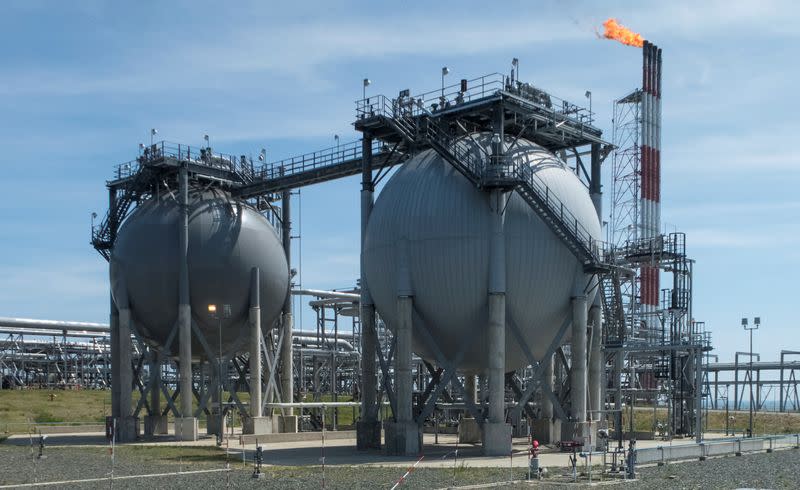Factbox-Russia's LNG industry and a possible EU ban on re-exports

(Reuters) - The European Union is considering imposing a ban on re-exporting Russian liquefied natural gas (LNG) via EU ports, saying it would help to reduce Moscow's revenues.
Gas market experts say the measure would have little impact as Europe is still buying Russian gas itself and trans-shipments via EU ports to Asia represent only around 10% of total Russian LNG exports.
EU diplomats say the re-export ban is part of a 14th package of Russian sanctions and could be agreed on Friday.
Below are facts about Russian LNG exports:
RUSSIAN LNG EXPORTS
Russia is the world's fourth-largest LNG producer with annual exports of 32.6 million metric tons in 2023, of which only 1.9 million were re-loaded at EU ports for exports to Asia, according to data analytics firm Kpler.
The EU has no imminent plans to stop buying Russian LNG. It has said it will try to wean itself of Russian gas by 2027 thanks to rising exports from Norway, the United States and Qatar.
TRANS-SHIPMENTS
Russian LNG exports become reliant on EU ports from November to June because thick ice prevents traditional LNG vessels from accessing the Arctic Yamal LNG terminals of gas producer Novatek.
Cargoes are transported via special ice-breaking vessels to EU hubs, where they are re-loaded, via ship-to-ship transfer (STS), into regular gas carriers and exported to countries including China, Taiwan, India and Turkey.
Novatek, Russia's largest LNG producer and Yamal LNG's main shareholder, has long-term contracts to sell over 17 million tons per year of LNG to Europe to firms such as China's CNPC, Shell, TotalEnegries, SEFE and Gunvor.
TWO TERMINALS
Russian trans-shipments mainly take place at Belgium's Zeebrugge and France's Montoir LNG terminals.
Belgian gas transport operator Fluxys has a 20-year contract with Yamal LNG for gas trans-shipment at Zeebrugge.
French energy company Engie has a 23-year contract to handle the STS operations. The contract now resides with TotalEnergies after it acquired Engie's LNG portfolio.
Some 31 vessels have performed STSs at Zeebrugge and Montoir in January-May this year, said Robert Songer, analyst at data intelligence company ICIS. Based on an average LNG cargo size of about 70,000 tons, that amounted to about 2 million tons, or 11% of total Russian LNG exports of 18 million, during the period.
IMPACT ON MOSCOW
A ban on LNG trans-shipment would have limited impact due to small volumes but would increase costs for Russian companies and disturb logistics.
"Russian LNG can still be easily trans-shipped within Russian waters at Murmansk or Kaliningrad or in other potential locations in the Mediterranean, much like Russia already does for its crude and refined products," said Charles Costerousse, senior LNG analyst at Kpler.
(Reporting by Marwa Rashad in London and Julia Payne in Brussels; Additional reporting by Emily Chow in Singapore; Editing by Mark Potter)

 Yahoo Finance
Yahoo Finance 